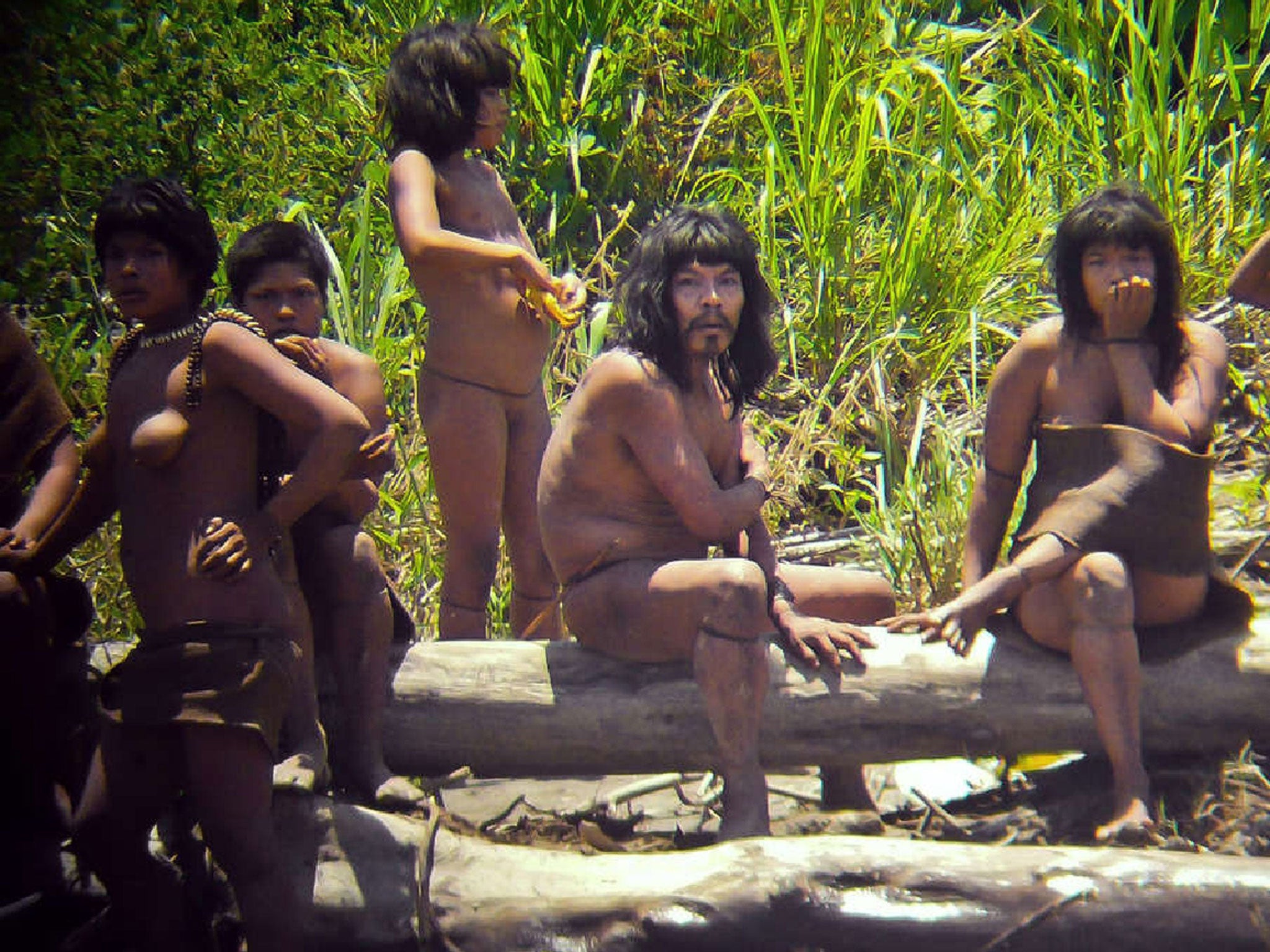Worlds most isolated tribe kill loggers encroaching on their land deep in Amazon rainforest
Two loggers have been killed by the reclusive Mashco Piro Indigenous tribe deep in Peru's Amazon
Your support helps us to tell the story
From reproductive rights to climate change to Big Tech, The Independent is on the ground when the story is developing. Whether it's investigating the financials of Elon Musk's pro-Trump PAC or producing our latest documentary, 'The A Word', which shines a light on the American women fighting for reproductive rights, we know how important it is to parse out the facts from the messaging.
At such a critical moment in US history, we need reporters on the ground. Your donation allows us to keep sending journalists to speak to both sides of the story.
The Independent is trusted by Americans across the entire political spectrum. And unlike many other quality news outlets, we choose not to lock Americans out of our reporting and analysis with paywalls. We believe quality journalism should be available to everyone, paid for by those who can afford it.
Your support makes all the difference.The world’s most remote and mysterious tribes have killed two loggers who were encroaching on their land.
The workers were killed by bow and arrow on the land of the Mashco Piro Indigenous tribe deep in Peru's Amazon, according to a rights group.
The Mashco Piro, who live between two natural reserves in Madre de Dios, rarely venture out and have limited interaction with the world.
The group, known as FENAMAD, defends the rights of Peru's Indigenous peoples. It says tensions between loggers and Indigenous tribes are on the rise and more government protective action is needed.
Two other loggers in the attack were missing and another was injured, FENAMAD said, and rescue efforts were underway.
The rights group, which represents 39 Indigenous communities in the Cusco and Madre de Dios regions in southeastern Peru, said the incident took place on Aug. 29 in the Pariamanu river basin while loggers were expanding their passageways into the forest and came into contact with the reclusive and renowned territorial tribe.
The Mashco Piro have been venturing out in search of food recently, driven away by the expanding logging activities.

“The Peruvian state has not taken preventive and protective measures to ensure the lives and integrity of the workers who have been gravely affected,” the group said in a statement Tuesday, adding authorities have yet to arrive in the area since the incident.
FENAMAD said the attack happened just 25 kilometers (15.5 miles) from a July incident, when the Mashco Piro again attacked loggers. The group said in their statement that even though they advised the government of the risk of a rise in violence, nothing has been done.
“It’s a heated and tense situation," said Cesar Ipenza, an Amazon-based lawyer who specializes in environmental law in Peru. “Undoubtedly, every day there are more tensions between Indigenous peoples in isolation and the different activities that are within the territory that they ancestrally pass through.”
There have been several other previous reports of conflicts. In one incident in 2022, two loggers were shot with arrows while fishing, one fatally, in an encounter with tribal members.
In January, Peru loosened restrictions on deforestation, which critics dubbed the “anti-forest law.” Researchers have since warned of the rise in deforestation for agriculture and how it is making it easier for illicit logging and mining.
Ipenaza said some effort has been made by authorities in the area like mobilizing a helicopter, but overall there has been “little commitment” by Peru's Ministry of Culture, responsible for the protection of Indigenous peoples.

The Ministry of Culture did not immediately respond to a message Wednesday seeking comment on the attack and their protection efforts.
The attack took place a day before the Forest Stewardship Council suspended the sustainability certification of a logging company for eight months which rights groups and activists have accused of encroaching on the Indigenous group’s land.
“It’s absurd that certifiers like the FSC keep the certification of companies that clearly and openly violate basic human rights and Indigenous rights,” said Julia Urrunaga, director of the Peru program at the Environmental Investigation Agency. “How terrible that people have to keep dying and that it has to be an international scandal for action to be taken.”
